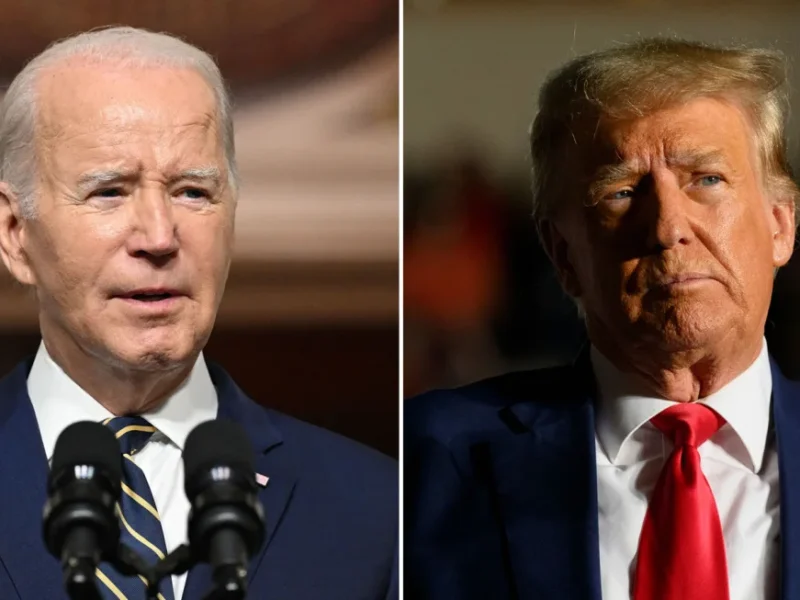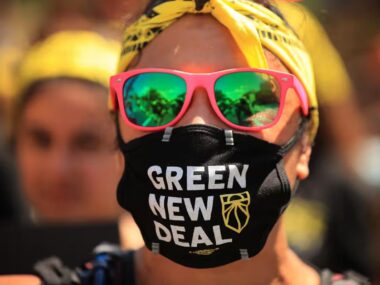President Joe Biden’s political campaign has widened its financial lead over former President Donald Trump’s campaign, as both prepare for an anticipated showdown in the upcoming general election, according to recent disclosures.
As of February, Biden’s main campaign committee boasts nearly $56 million in cash reserves, while Trump’s equivalent account holds just over $30 million.
Despite Trump’s efforts to raise funds, Biden continues to attract contributions. Meanwhile, Trump faces mounting legal challenges, which are diverting resources, and his primary opponent, South Carolina Gov. Nikki Haley, persists in her unlikely bid for the GOP nomination.
Haley, committed to staying in the race until Super Tuesday, started February with nearly $13 million in cash reserves, although she spent more than she raised in January.
Here are the key insights gleaned from the latest campaign finance filings.
Biden enjoys an early financial advantage.
Biden’s political operation closed January with robust financial strength, starting February with $130 million in cash across all affiliated committees.
However, it’s important to note that the filings from Tuesday only represent a portion of each candidate’s political operation. The full fundraising picture, including joint fundraising committee details, will become clearer later in the year.
While Biden’s current fundraising total trails behind what Trump and the Republican National Committee had amassed by this point in 2020—over $200 million—Biden benefits from his incumbency in 2024. This allows him to engage in joint fundraising efforts with the national party and accumulate funds in preparation for the upcoming costly general election campaign.
Biden’s recent fundraising tour on the West Coast was anticipated to yield up to $10 million in contributions.
The strength and influence of political parties.
In January, the Democratic National Committee (DNC) outpaced its Republican counterpart in fundraising, collecting $17.4 million and ending the month with $24 million in cash on hand. This figure significantly exceeds the Republican National Committee’s (RNC) available cash, which stood at $8.7 million. Although this represents a slight increase from the $8 million reported at the end of the previous year, it marks the RNC’s lowest total in approximately ten years.
The RNC’s dwindling cash reserves have raised concerns within the party and contributed to the impending departure of outgoing chair Ronna McDaniel, who plans to step down later this month. This leadership change is part of broader reforms within the RNC, coinciding with Trump’s anticipated restructuring of the party’s infrastructure. The RNC’s current cash reserves of $8.7 million are notably lower than the peak of over $90 million reported in 2021 and represent the lowest level since early 2015.
While Trump leads the GOP race, he has yet to formally secure the nomination and integrate his campaign machinery with that of the RNC. This merger is anticipated to bolster the party’s fundraising efforts and will place Trump’s close allies in control of the committee’s operations and finances.
Following a spending spree in January, the cash reserves of the pro-Haley Super PAC have diminished.
The main super PAC backing Haley’s presidential bid, SFA Fund, experienced significant spending in January, leaving it with just $1.9 million in cash reserves by the end of the month. Despite raising approximately $12.1 million in January, including substantial contributions from notable figures like venture capitalist Tim Draper and investment banker Warren Stephens, the super PAC expended nearly $13.7 million as the primary contests commenced.
This expenditure trend has resulted in a meager cash balance entering February. Overall, SFA Fund has expended close to $80 million in support of Haley’s candidacy, yet it has not made significant headway in challenging Trump’s dominance in the primary race, with Haley failing to secure victories in early state contests.
Throughout February, the super PAC continued its substantial spending on pro-Haley activities, indicating ongoing financial support. However, a spokesperson for the super PAC declined to comment on its financial status.
Despite trailing Trump by a considerable margin in polls leading up to the primary in her home state, Haley remains committed to her campaign, vowing to persevere until the last vote is cast.
However, top advisers to Trump contend that Haley lacks a viable path to securing the nomination and anticipate that Trump will gather the necessary delegates to effectively conclude the GOP nomination contest next month.
RFK Jr. rapidly depletes funds.
Robert F. Kennedy, Jr., who is running an independent presidential campaign, amassed nearly $2.7 million in contributions last month. However, his campaign burned through more than $3.2 million in expenditures during the same period, leaving him with approximately $4.9 million in remaining funds at the end of January.
Kennedy’s candidacy, as a scion of the prominent Democratic Kennedy family, has sparked concerns that his campaign could divert votes away from Biden.
To support his bid, the super PAC American Values has pledged to spend up to $15 million to secure Kennedy’s placement on the ballot in key states. Notably, one of the primary backers of this super PAC is Republican mega-donor Timothy Mellon, an heir to the Mellon banking fortune. Mellon contributed $5 million to the pro-Kennedy super PAC last month, which accounted for more than half of the group’s total fundraising in January.
With a significant contribution from Mellon, American Values concluded January with over $23 million in available cash, indicating a substantial financial reserve.
In addition to supporting Kennedy, Mellon also donated $5 million to a pro-Trump super PAC during the same period.











